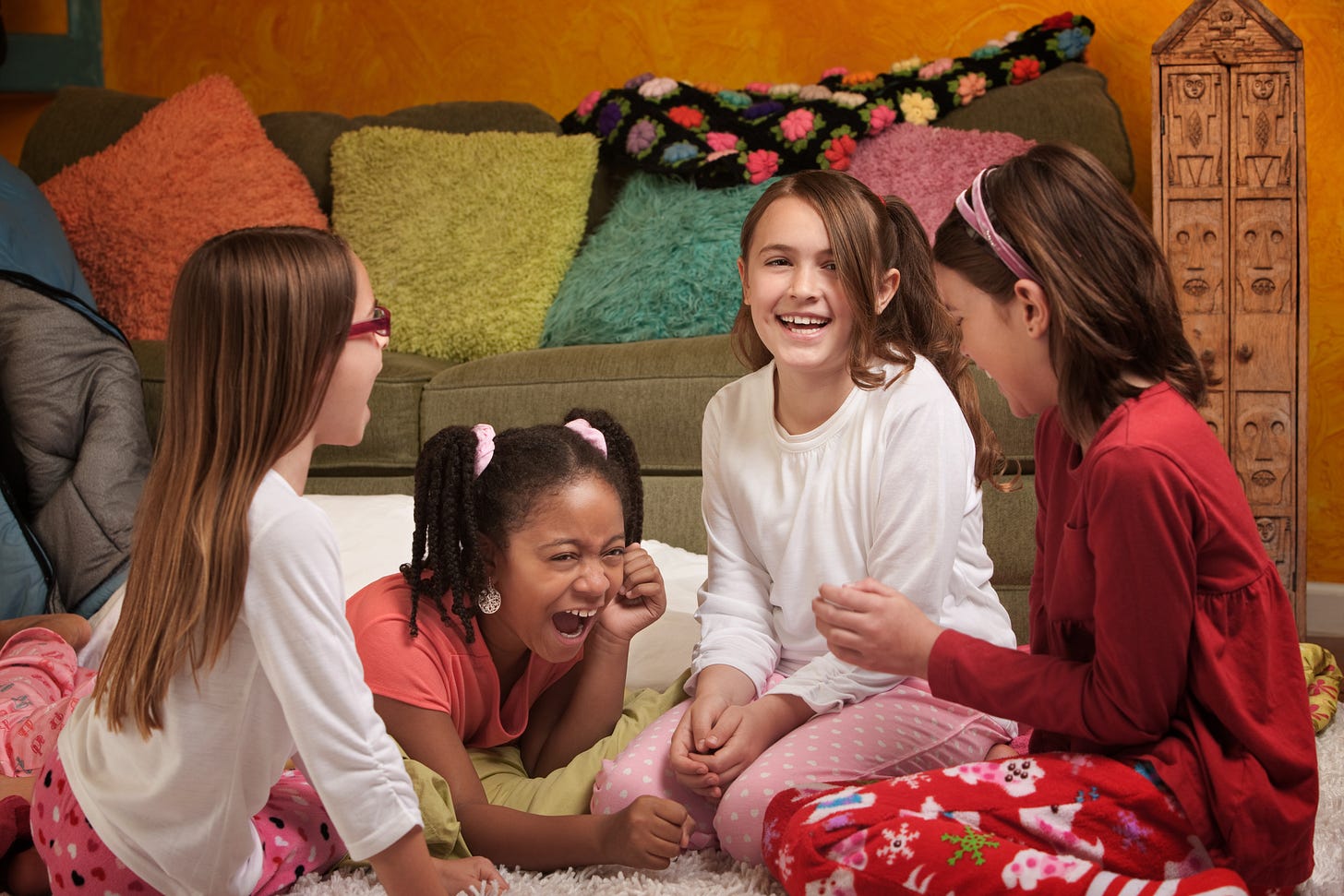CW: This newsletter discusses rape, incest and child sex abuse.
You know me: I do not shy away from difficult topics. So today, I want to dig into the controversy over sleepovers and overnight camps. I learned recently that many parents are staunchly against letting their kids sleep away from home because of the potential sex abuse risks, and I get it: There’s nothing scarier than the idea of your child being sexually assaulted. Making matters worse, there have been serious camp abuse scandals in the news.
So what’s a parent to do? To get answers, I called Brooklyn-based sex educator Rachel Lotus, who has made it her life’s work to help parents navigate gnarly questions like these (and is very good at it!). She addressed all of my difficult queries and shared a number of helpful scripts. This is a long interview, but I wanted to address as many issues as possible, and a lot came up. Here’s an edited version of our conversation.
Rachel, thank you so much for agreeing to share your wisdom. This summer, right before my kids were going to overnight camp, I was at a BBQ, and a mom said to me, “Oh my gosh, I would never ever send my kid to overnight camp.” Then I started Googling, and I found tons of articles about why parents won't send their kids to sleepovers and camps. I wondered: How should parents navigate this? Was I crazy to send my kids to camp? I mean, first off, do we know how commonly sex abuse happens at sleepovers or camps?
It's a great question. I was poking around to see and I don't think we know — I don't think we have data that is specific to those situations.
I imagine there's significant under-reporting, too, so we won’t always know when it happens.
Yes — it’s something ridiculous, like only 12 percent of child sexual abuse victims ever tell what happened to them, ever. To share some other stats on abuse: Most of it happens between the ages of 7 and 13, which makes total sense because that is the age range where kids are spending more time away from their parents. And yet they're still young enough to be very vulnerable, and to not necessarily recognize the lead-up warning signs that something might be not okay with the way an adult or older kid is interacting with them.
The vast majority of abuse is from a familiar known adult — like 93 percent. Fifty-something percent are acquaintances. Thirty-something percent are family members, and a very small percentage are complete and total strangers. I think the stats in terms of gender are a little skewed, but it's reportedly one in three girls and one in six boys who will experience some kind of unwanted sexual experience — but I think that that number is probably a lot higher for boys [due to underreporting], because of all the stigma and shame and the undercurrent of homophobia.
That's a scary opener to our conversation. Does this mean we shouldn't send our kids to overnight camps and sleepovers?
No. We cannot completely eliminate risk for our kids. And in fact, we shouldn't, because then we are depriving them of potentially fun, expansive, confidence-building opportunities. I think helping kids navigate risk is an essential life skill.
But, this is a particularly scary risk. And so when we start entering into the “what ifs” in this realm, I think it is totally understandable that many parents opt for “I'm just not even going to put them in the situation, period. Because that way, I am certain that nothing can happen to them.” But I don't think that's actually the case — I think there are a lot of different situations where things like this can and do happen. And so instead of trying to eliminate the risk completely, we can focus our efforts on mitigating the risk, and helping empower our kids with knowledge and skills and emotional literacy and confidence.
That sounds like a reasonable approach. So how do we actually do this?





